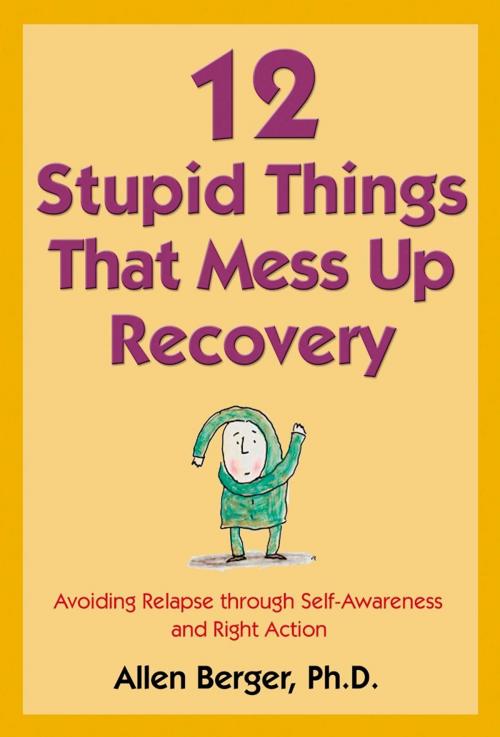12 Stupid Things That Mess Up Recovery
Avoiding Relapse through Self-Awareness and Right Action
Nonfiction, Health & Well Being, Self Help, Addiction, Drug Dependence, Twelve-Step Programs, Alcoholism| Author: | Allen Berger, Ph. D. | ISBN: | 9781592857883 |
| Publisher: | Hazelden Publishing | Publication: | June 3, 2009 |
| Imprint: | Hazelden Publishing | Language: | English |
| Author: | Allen Berger, Ph. D. |
| ISBN: | 9781592857883 |
| Publisher: | Hazelden Publishing |
| Publication: | June 3, 2009 |
| Imprint: | Hazelden Publishing |
| Language: | English |
Concise advice on hunting down the personal culprits that sabotage sobriety and personal happiness.
To grow in recovery, we must grow up emotionally. This means getting honest with ourselves and facing up to the self-defeating thoughts and actions that put our sobriety at risk. Although there are as many ways to mess up recovery as there are alcoholics and addicts, some general themes exist, which include: confusing self-concern with selfishness; not making amends; using the program to try to become perfect; not getting help for relationship troubles; and believing that life should be easy.
In simple, down-to-earth language, Allen Berger explores the twelve most commonly confronted beliefs and attitudes that can sabotage recovery. He then provides tools for working through these problems in daily life. This useful guide offers fresh perspectives on how the process of change begins with basic self-awareness and a commitment to working a daily program.
Concise advice on hunting down the personal culprits that sabotage sobriety and personal happiness.
To grow in recovery, we must grow up emotionally. This means getting honest with ourselves and facing up to the self-defeating thoughts and actions that put our sobriety at risk. Although there are as many ways to mess up recovery as there are alcoholics and addicts, some general themes exist, which include: confusing self-concern with selfishness; not making amends; using the program to try to become perfect; not getting help for relationship troubles; and believing that life should be easy.
In simple, down-to-earth language, Allen Berger explores the twelve most commonly confronted beliefs and attitudes that can sabotage recovery. He then provides tools for working through these problems in daily life. This useful guide offers fresh perspectives on how the process of change begins with basic self-awareness and a commitment to working a daily program.















